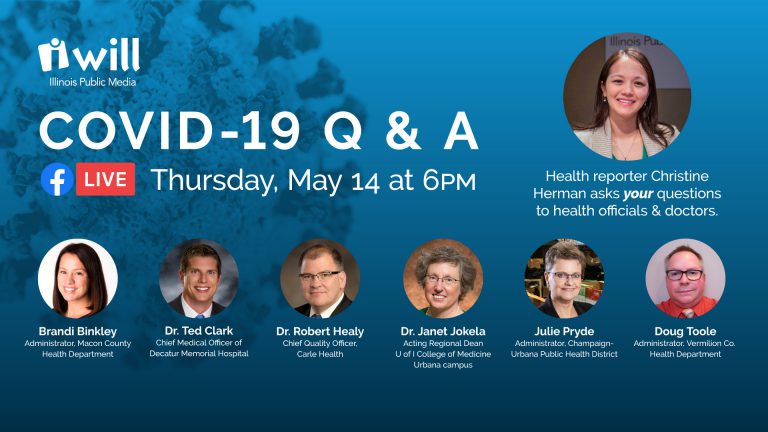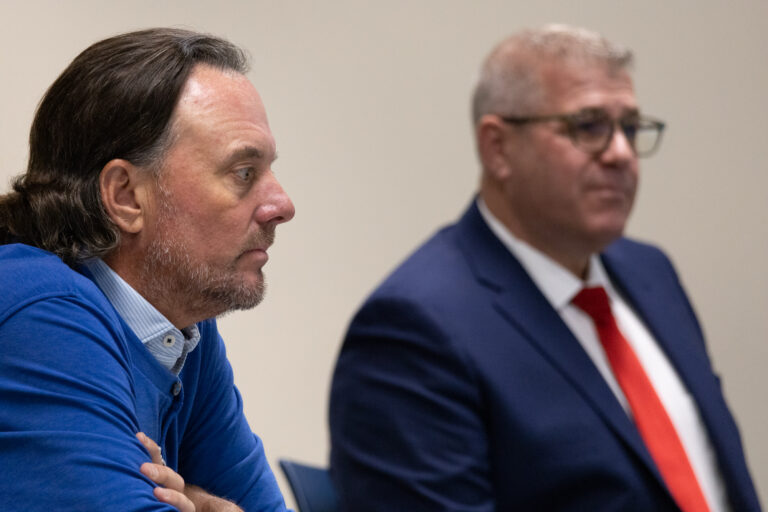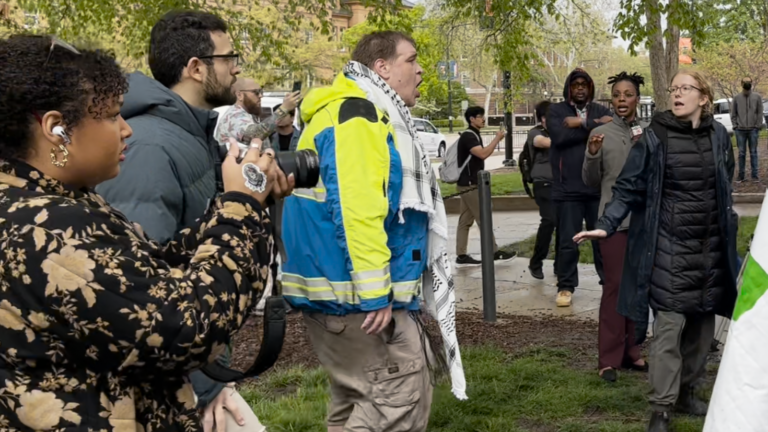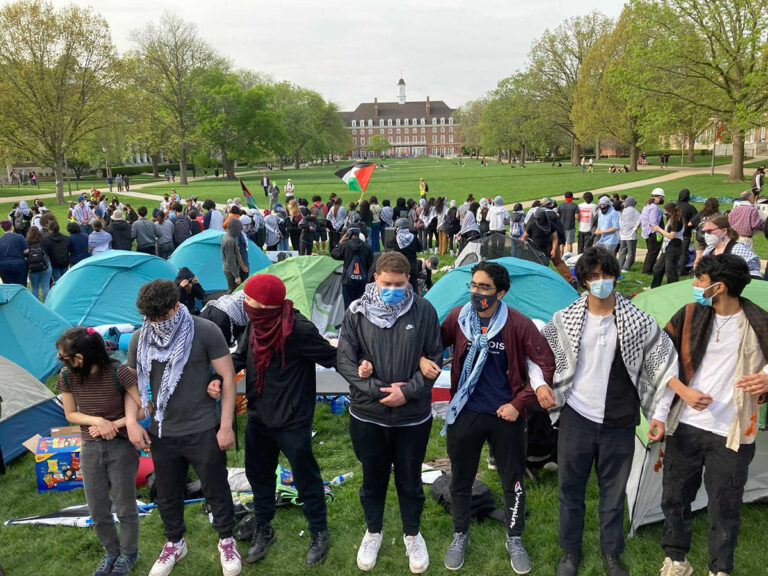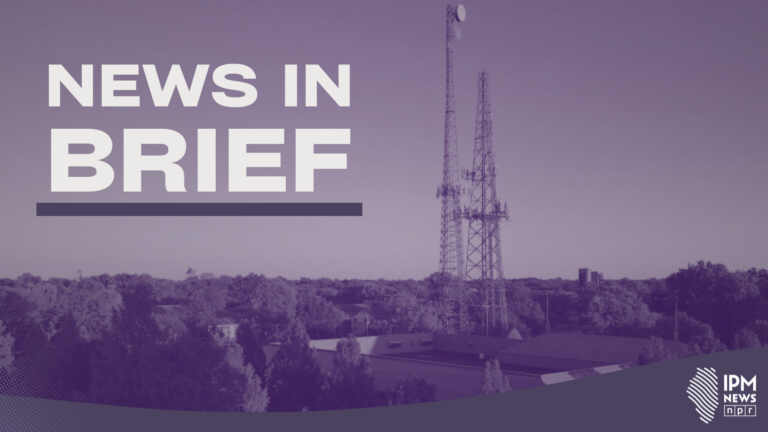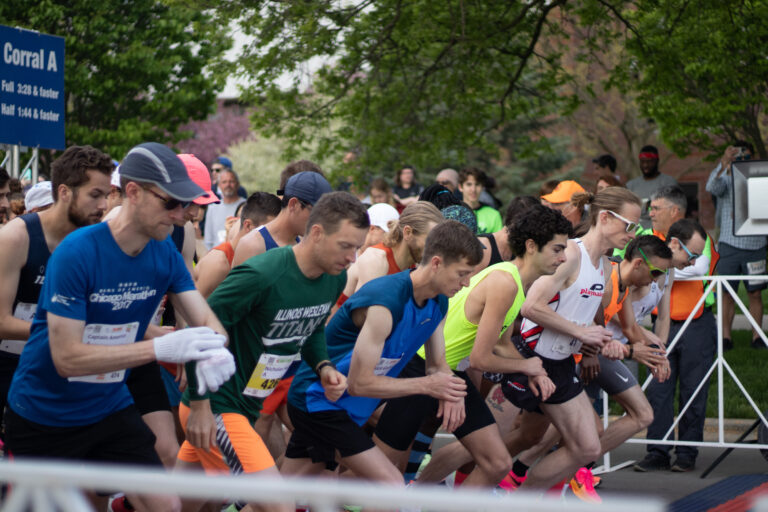- Status updates from local public health administrators and medical doctors
- COVID-19 immunity, contact tracing, social distancing and face mask guidance
- Antibody testing, advice on reopening the economy, questions about childcare
- Dental care, elective medical procedures, public health services and what’s on the horizon
- Employer responsibilities, where to report issues and final thoughts
Final thoughts
Christine Herman: We have about six minutes left, and we have six panelists. I wanted to give you each a minute, roughly, just to share a final thought, whether it’s one thing that you hope sticks with people after tonight, or perhaps what is one thing that’s giving you hope during a time like now?
Doug Toole: This has been a difficult time for everyone. I’ve been impressed by seeing how many people have really risen to the challenge with this. When schools had to close unexpectedly, you had a lot of teachers and school administrators scrambling to find ways, you know, how is it that we can educate kids if they can’t come into the building? How can we provide lunches for kids? We’ve had a lot of restaurants step up with that sort of thing. All the people making masks and donating them.
We’ve seen a lot of good come out of this. If there’s one thing that sticks with us going forward, the emphasis on washing hands and the understanding that if you’re sick you really need to stay home. It’s just heartbreaking to see those flu statistics every year. And at the beginning (of the pandemic), you’d hear people talk about how COVID may or may not be as lethal as the flu. And I’m like: When did it become okay for 20,000 Americans die from the flu every year?
Julie Pryde: Well, you know, I am hopeful. Like I said earlier, pandemics change societies. And I think that the one thing that’s coming out of this is that, like Doug said, people are really rising to the challenge.
There is so much creativity, so much collaboration, cooperation, goodwill out there, even though there’s some of the other that’s negative, for the most part, people are really impressing me with how they’re doing things.
But one thing that I really hope comes out of this, because this pandemic is shining a bright light on what public health has said forever, and that is that health disparities, all the inequalities that we have, lack of access of health care for everyone, environmental degradation, all of that, that is a global problem, and it exacerbates problems. And you can see that, you know, we are all interconnected.
There is truly one health. It is animals, humans and environment and we have to pay attention to all of them. And it does no good to just have some people who can afford health care and others who cannot. So it is truly my hope, and my belief, honestly, that we may come out of this pandemic with a more just society.
Dr. Janet Jokela: Julie, I love what you said. Thank you. Let’s see. Wash your hands. Continue social distancing. Wear your mask. Get your flu shot this fall. And be safe and be well, everybody. Thank you.
Brandi Binkley: I definitely mirror what the other panelists have said. And I certainly think that we all need to pay so much more attention to, like Julie said, the interconnectedness, health equity, the importance of health and the impact that it has on everyone and everything in our economy. I know that’s been a big concern, and continues to be. So I think, hoping that people will continue to prioritize health.
And the thing that’s given me great hope is seeing everybody step up. I am so grateful to our team at the health department, and all of the teams, the health care workers, the community members, and all the people that have made the choice to stay home, be selfless, social distance, wear their cloth face coverings. I know this is not easy. It’s a very, very difficult time, but so many people are doing so many amazing things that save lives and I’m very grateful for that.
Dr. Robert Healy: All the above. And I would say, we need to be patient with each other. I think we need to model behavior of what we want our kids and others to do. And I need to remind myself of this very often: If I go out and I’m in a place and I see that people aren’t masked, or aren’t keeping the right distance, I’m just going to walk away. I’ll talk to a manager, I’ll try to inform people. But really, I think, being patient with each other, trying to get people to listen to science, and follow directions from science, I think will go a long way.
Dr. Ted Clark: I’ve been overwhelmed and impressed by the work of our public health departments and being able to work alongside them and the coordination between our regional healthcare systems and being willing to have these conversations and help one another out. And the public, again, stepping up and really doing what it took to get us to this point where we can have this discussion about opening again.
Finally, I do want to say, we kind of get locked into this “COVID thinking,” where it’s either COVID or not COVID. But we need to remember that there are a lot of other diseases and illnesses out there that do require care. And if you’re experiencing chest pain, shortness of breath, stroke symptoms, severe abdominal pain, injury, don’t be afraid to seek out care. Don’t be afraid to call your primary care provider and get in to be seen. Don’t be afraid to visit the emergency department. The hospitals and systems have worked to make sure that you can be cared for.
Christine Herman: Well, we are so grateful to all of you both for being so generous, generous with your time tonight as well as for the work you’re doing every day to keep us safe, and to help protect our community. Thank you for joining us.
NOTES: After the live event, panelists followed up via email to answer additional questions that were submitted but not addressed during the Facebook Live event.
Question from Paul: It seems vaccines for pneumonias and perhaps more than the usual three strains of flu seems like a good idea for the fall second wave. China is using a variant of Interferon as an antiviral. I hear no discussion of this. Do you know why that is?
Answer from Dr. Janet Jokela: Many studies are ongoing all over the world exploring various treatments for Covid-19, and interferon is one of the agents under study.
Question from Lucia: Members of the Latino community are very concerned at the increased number of cases among the Latino community. A few people are wondering how they can protect themselves in the workplace? Where in Champaign Urbana can they go to get support if their employer is not enforcing social distance in the workplace and not providing protective equipment?
Answer from Julie Pryde: In the workplace, in the vehicles traveling to and from work, during breaks and lunches, and after work, employees need to wear face coverings. The virus can travel between people when they are close to each other, so maintain at least 6 feet distance from others. When you cannot, it is imperative that all wear face coverings. Additionally, wash hands often, using soap and scrubbing for at least 20 seconds.
Complaints about workplaces not providing personal protective equipment or not following the infection control practices for COVID-19 can be made to Champaign-Urbana Public Health District: 217-239-7877 or coronavirus@c-uphd.org. These reports can be made anonymously. CUPHD will follow-up with the employer.
Special thanks to the many people at WILL who helped make this event possible: DJ Roach, Alex Coleman, Kimberlie Kranich, Kurt Bielema, Liz Westfield, Samantha Schrage, and the Illinois Newsroom team.
The Illinois Newsroom team is answering questions from listeners to navigate this unprecedented time. Have a question you want answered? Ask here.

